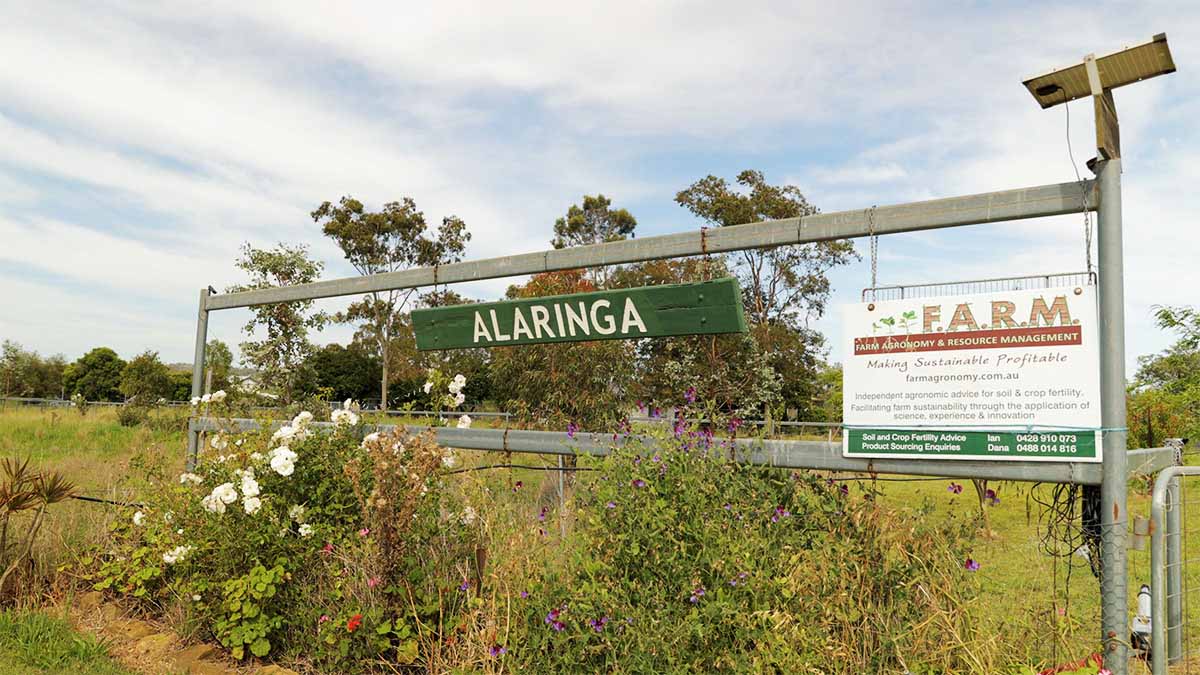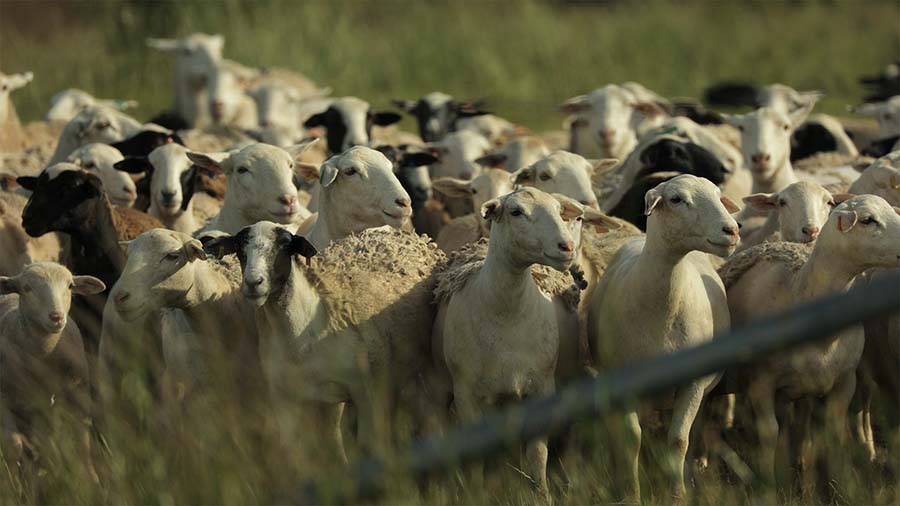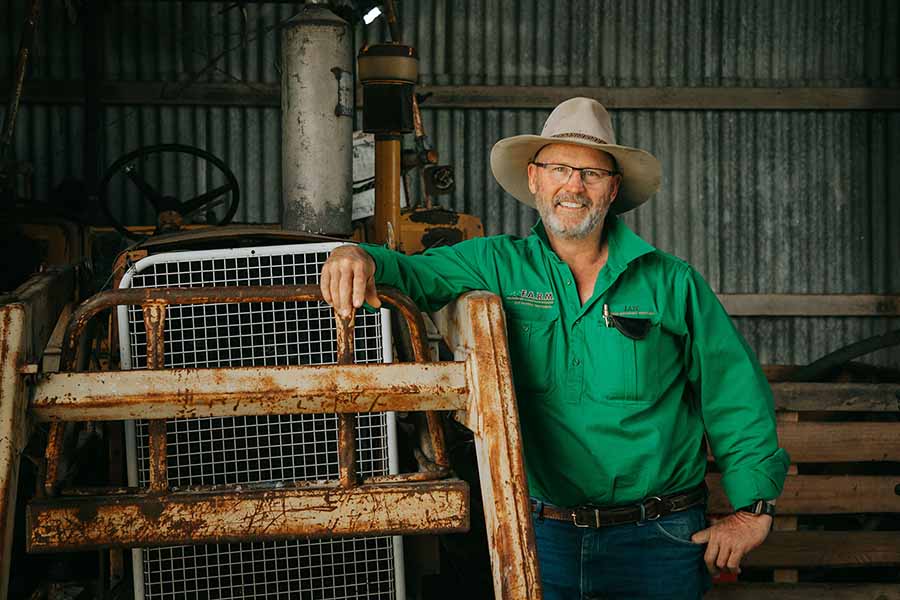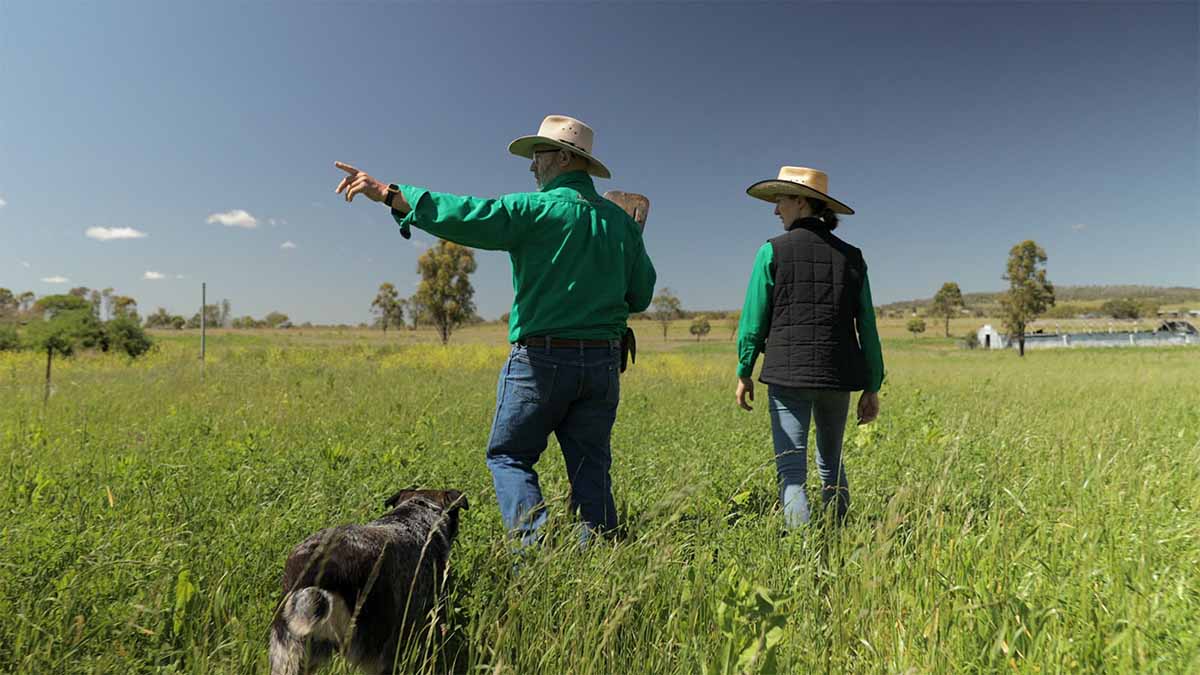Alaringa is very much an extension of Mossy himself. There are a few endearing rough edges, like the rusty Southern Cross windmill missing half its sails, a lingering testament to the state of the farm when he moved in. And there's the War Wagon, a doorless Hilux with almost a million on the clock, which acts as a mobile workshop, fencing truck and bar for the occasional sundowners on Alaringa's far corners. Then there's the land itself: with views up and down the rangeland, the relatively small farm feels as expansive as Mossy's personal approach to agronomy.
With views up and down the rangeland, the relatively small farm feels as expansive as Mossy's personal approach to agronomy.
I've visited Alaringa a few times over the last 18 months. On each visit the pastures were thick with multispecies. Once, after good rain, the paddocks were a chest-high forage forest that our camera crew had to push through and often got lost in. I'll never forget seeing Mossy on one visit, standing amid the towering brassicas and grasses, the air alive with beneficial bugs, looking about as content as a farmer could be.






